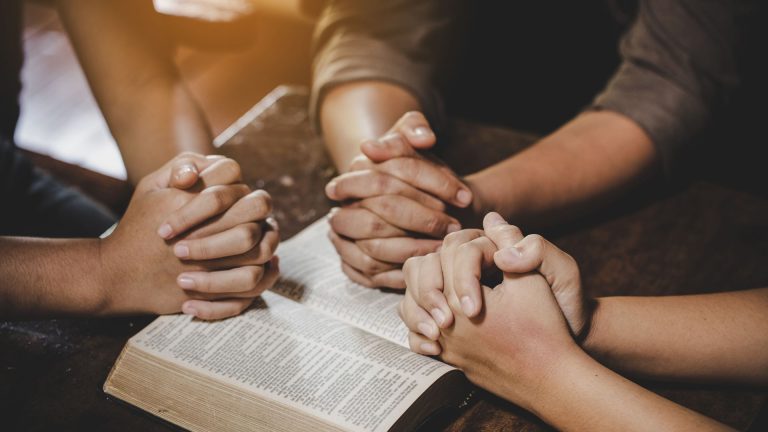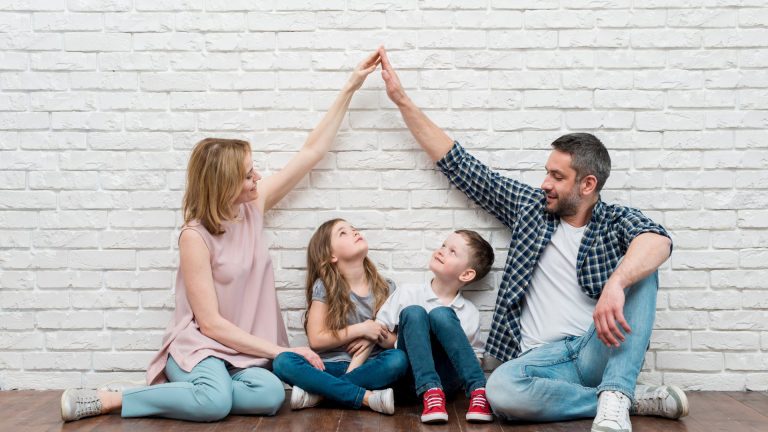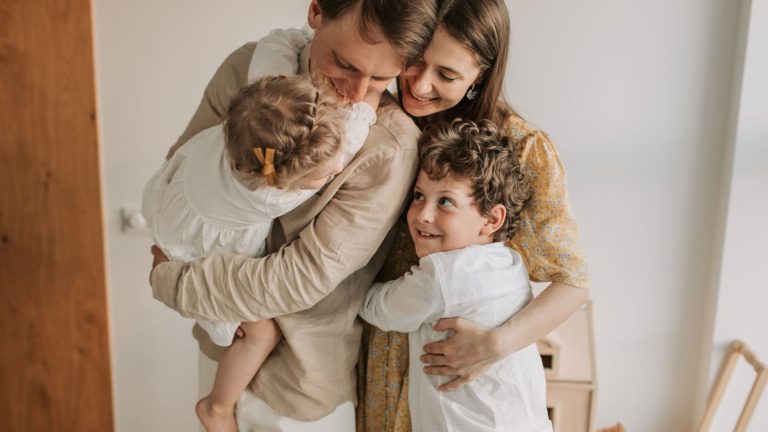
Family Foundations: Building a Strong Family (Part 3 of 3)
Disregarding God’s standard of morality creates confusion at the core of who we are and the basics of what is right and what is wrong.

The following is an excerpt from Dying to Live: Experiencing God’s Redemptive Power in the Midst of Tragedy, by Bryn S. Elliott.
A big reason I kept living with a victim mindset for so long was that I didn’t know I had the power to change. I didn’t understand that being a victim was a choice. A choice I was making every day. It’s impossible to change something you aren’t aware of, so once I realized what I was doing, I had no excuse.
A victor realizes that they have control over both their outlook on life and their future. A victor doesn’t let life’s circumstances take control of their outcomes; no matter the situation, we have a choice. A victor takes responsibility for their own life, whether that means for their actions or their behaviors. A victor has an inward focus, not in a selfish way but in a reflective and mindful way. This means that they aren’t looking around at what everyone else is or isn’t doing and passing judgment; it means they are focused on what they themselves should or shouldn’t be doing. A victor will always look for where they can grow, develop, and improve themselves.
As I said before, when a victim faces challenges, they feel like the world is against them. On the opposite end of the spectrum, a victor sees life challenges as opportunities to grow. A victor is in control of their life and directs themselves where they want to go instead of letting life call the shots. Overall, someone living with a victor’s mindset will live free and empowered versus trapped and controlled.
An example of when I showed up to life as a victor is when I started life coaching. Abbe was killed about a year before I began meeting with my life coach. At this point, life was a rollercoaster that I didn’t want to be on. It felt like I didn’t have a choice or a chance to get off, and I had been living like that for a long time.
I was unable to cope with my emotions, and ultimately, I let my emotions dictate my choices and behavior. Even the smallest inconveniences took me down a wild spiral. If an egg dropped while I was making breakfast, I’d be on the floor crying right alongside it. If I couldn’t open a jar, I’d get angry and yell at myself or sometimes even at the jar. I never felt settled, and my anxiety was on high alert at all times. I reached a point where I just couldn’t take it anymore.
That’s when I gave life coaching a chance for the first time. I kept hearing how different it was from therapy. I had done years of therapy for trauma, but I felt like I was going in circles. I’d talk about things with my therapist, and the therapist would say things like “I hear you,” or “Wow, that must be hard.” In my head, all I could think was, How does that help? Oftentimes, it didn’t. If anything, it helped me stay in a victim mindset.
There is a time and place for both therapy and life coaching, and I was ready to get off of the hamster wheel I had found myself on. It was time to take control of my own life. Get out of the cage and go take a real walk to get some fresh air and a change of scenery.
What I really wanted was results. I decided I wanted to change how I was living and that I was committed to working as hard as I could to shift my mindset from victim to victor. I looked at this challenge as an opportunity to grow (victor’s mentality) instead of being angry that I had a lot of work ahead of me (victim’s mentality).
Starting coaching was like making a commitment to live my life with a victor’s mindset. Even when it was hard and uncomfortable, I stuck with it. It was my chance to learn and be curious about myself. One huge factor that impacted my coaching experience was my life coach herself. She was a Christian who made a point of letting the Holy Spirit lead when we were in session. The Lord walked me through this shift of mindset in a way that I could grasp. I will forever be grateful for this experience.
After changing my mindset, everything else aligned. I was able to control my emotions, my anxiety was no longer in charge of my life, and I could respond rather than react to situations.
As I mentioned at the beginning of this chapter, we have no control over some situations in life. Some things just happen, and we don’t get a say. That doesn’t mean that we have to be a victim of the situation, though. Even in situations that we can’t control, we still have a choice. We have the choice to either receive it as a victim or a victor. We can feel bad for ourselves and wallow in our suffering, or we can choose to learn, grow, and be positive about how God can use our story moving forward.
Interestingly, mindsets all relate to biblical truth! Remember what I said previously about truths that line up with Scripture? Well, this one definitely does.
The Bible talks a lot about sonship, the opposite being an “orphan spirit.” This is the root of the victor versus victim mindset. Wounds and identity issues make it difficult for anyone to receive the inheritance of true sonship. It was impossible for me to walk in a spirit of sonship (same for daughters) until I was able to identify the lies I believed about myself and replace them with my true identity in Christ. We all start out as creations of God, but we become sons and daughters when we accept Jesus into our lives and become born again in the Spirit. We are new creations.
We all start as orphans, separated from God. (This is due to the fall of man, which you can read about in Genesis 3.) Only when we accept Jesus into our lives, declaring Him as the one true God, do we become adopted into His family. This is sonship! Even after giving our lives to Jesus, a lot of people still operate as orphans. This is where we need to invite the Holy Spirit into our lives, asking Him to heal us of past wounds or misguided beliefs that cause us to remain in an orphan spirit. Some indicators of an orphan spirit are:
Oftentimes someone operating in an orphan spirit gets their worth from feeling needed and wanted by others. Our validation should only come from the Lord. Anything less is bondage.
Most people and many Christians think all of the thoughts that come into their minds are their own, which is not true. We must understand that accusatory and condemning thoughts look to kill, steal, and destroy our faith, identity, hope, and love. These don’t come from God. When we are filled with the spirit of adoption, these thoughts (lies) bounce off of us. As a son or daughter, the indicators are very different:
This is freedom and abundant life. This is the truth of walking in a spirit of sonship. You are a victor because Christ said so!
God’s love is a gift. He doesn’t love us because of what we have done or who we are. It’s a gift that we do not deserve, we cannot earn, and cannot be taken away. All we need to do is accept that gift. The Bible is a resource God gave us to know Him, but Jesus is the way we get to know the Father’s heart. He is an exact representation of the Father. When we know Jesus, we know the Father. By walking in sonship and seeking His presence, we are changed by His grace and His glory from the inside out.
Ultimately, through faith in Jesus, we become children of God and an entirely new creation born into His family. The heart of the Father has always been turned toward His children, and Jesus perfectly modeled the heart of the Father. God grants us the spirit of sonship. Our serving comes from sonship. Obedience doesn’t come from a sense of duty but out of a response to God’s love and faithfulness to us. It is about falling in love with Jesus, who will lead us to the Father. God is longing for us to embrace Him. When we find Him, we will find ourselves, and that is sonship!

Disregarding God’s standard of morality creates confusion at the core of who we are and the basics of what is right and what is wrong.

The definition of “family” has been increasingly fluid through the modernization and secularization of the western world. To understand why family

Family lays the foundation of a society and impacts every single part of human life. If we want to know the direction the world is going,